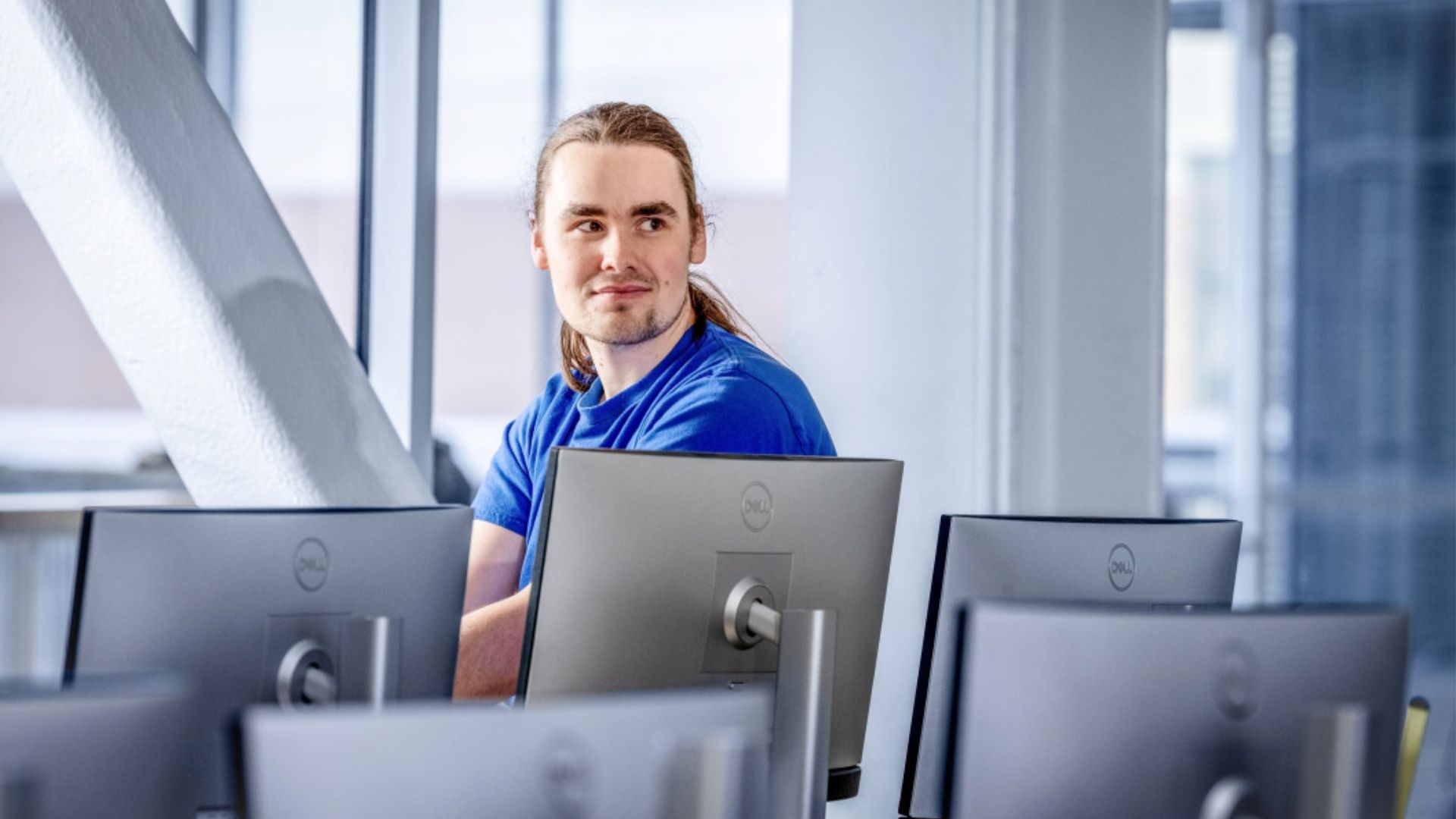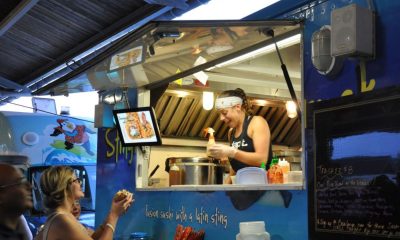Local News
RIT students find new purpose through open source projects that aim to make technology more accessible and inclusive for everyone

Rochester, New York – In a world increasingly shaped by digital tools and virtual communities, a group of students at Rochester Institute of Technology (RIT) are doing more than just keeping up—they’re actively shaping the future. Inspired by a shared belief in transparency, collaboration, and accessibility, these students are investing their time and talent into building a more open and inclusive tomorrow.
At the heart of this grassroots movement is Adrian Edwards, a driven computer science student who has dedicated the last five years to promoting open source software and free culture on campus. You’ll often find him in RIT’s SHED, headphones on and laptop open, knee-deep in code that’s meant to make life better for others.
“I love the open source spirit,” said Edwards, who is earning a combined accelerated bachelor’s/master’s degree in computer science. “I want to encourage students to get involved and help solve problems around them. Participating in open projects is a great way to meet people and contribute. Be the change you want to see.”
That quote sums up Edwards’ mission—and the momentum he’s built around it. Since arriving at RIT, he’s woven open culture into nearly every aspect of his academic and extracurricular life. From hosting weekly “FOSS Hours” workshops to mentoring fellow students and developing practical campus software, Edwards is proof that sharing knowledge freely can inspire real progress.
A Culture of Openness
RIT’s connection to open source runs deep. The university holds the distinction of being the first in the United States to offer both an academic minor and immersion in free and open source software (FOSS) and free culture. It’s this unique offering that initially attracted Edwards to RIT. Once enrolled, he didn’t waste any time. He took the courses, became a teaching assistant, and then became a leader in the campus’s open source community.
Open source, in simple terms, means that the software code is made freely available for anyone to inspect, modify, and improve. But Edwards emphasizes that the philosophy behind it extends far beyond coding.
“A lot of people connect the free part to money, but it’s also about freedom,” said Edwards, who is from Lake Oswego, Ore. “I think people are starting to see the benefit of being able to control what runs on their computers. There’s a lot of benefits and I know that code won’t be slipped in without my knowing.”
To him, open source is about empowerment. It’s about knowing what’s under the hood of the software you use every day—and having the freedom to change it if needed. That sense of agency is what Edwards hopes more students will experience through FOSS.
From Hackathons to Real-World Impact
Edwards has taken part in RIT’s BrickHack, an annual student hackathon where teams build projects in just 24 hours. More than just a test of skill, the event is a chance to create tools that matter. One such example is a bus scheduling app currently in development by another student, which Edwards has been supporting.
Another notable contribution came from a conversation with RIT’s University Advancement team. Edwards, eager to help raise funds for FOSS programs during ROAR Day, ended up building a custom ROAR Day URL Creator—a tool that simplifies the process of generating fundraising links for student ambassadors. It’s not just code; it’s a solution with direct impact.
These kinds of projects show how open source principles can extend beyond software into broader forms of innovation and community support.
Encouraging New Voices
The ripple effect of Edwards’ work is seen in the students around him, many of whom are stepping into the world of open source for the first time. Maria Weir, a third-year student double majoring in sociology and anthropology and public design, met Edwards through the Disability Culture Club. She now regularly attends FOSS Hours and is using what she’s learned to drive forward her senior capstone project.
“I’m one of the more tech-illiterate people at RIT, so making a website as my final project was incredibly intimidating,” said Weir, who is from Nashville, Tenn. “FOSS Hours is like a collaborative, casual study hall where people work on their own projects but also share ideas.”
Her project aims to improve campus accessibility through a crowdsourced map of access points like elevators and automatic door buttons. The goal? Help students and staff report outages and track maintenance in real time. It’s practical, impactful, and rooted in open culture—just like the best of FOSS.
Looking Ahead
After graduation this May, Edwards will take his passion for open source to the next level with a full-time position at Red Hat, a global leader in open source enterprise solutions. There, he’ll work as a software engineer on the CHAOSS project—short for Community Health Analytics in Open Source Software. The role focuses on analyzing the well-being of open source communities by tracking key metrics and addressing vulnerabilities early.
Edwards credits his success to the vibrant and supportive FOSS community at RIT.
“Then, if you encounter a problem, you can actually follow the trail, join a community, and figure out how to help fix it,” said Edwards. “Get involved and you can help make a difference in the world.”
A Hub for Open Thinking
RIT’s broader open source initiative, known as Open@RIT, was launched in 2020 to foster collaboration across disciplines. The program supports open hardware, educational resources, research, and data—extending well beyond software development.
One of its key partners is FOSS@MAGIC, which works directly with students to support and promote open source projects. Students interested in joining the movement can search “open source” in the RIT Discord hub, connect via the #rit-foss channel on Libera.chat, or jump into conversations on Telegram.
This network of open thinkers is reshaping how students approach technology, collaboration, and problem-solving. And with more students like Edwards leading the way, the future is not only bright—it’s open.
Whether it’s coding, design, or community organizing, the open source movement at RIT proves that when knowledge is shared freely, innovation follows. As Edwards and his peers demonstrate, the open culture is more than just a philosophy—it’s a practice that brings people together to build things that matter.

-

 Local News12 months ago
Local News12 months agoNew ALDI store close to Rochester to begin construction in late 2025 or early 2026
-

 Local News12 months ago
Local News12 months agoRochester Lilac Festival announces exciting 127th edition headliners
-

 Local News10 months ago
Local News10 months agoCounty Executive Adam Bello and members of the county legislature celebrate exceptional young leaders and advocates at the 2025 Monroe County Youth Awards
-

 Local News10 months ago
Local News10 months agoThe 2025 Public Market Food Truck Rodeo series will begin this Wednesday with live music by the Royal Bromleys